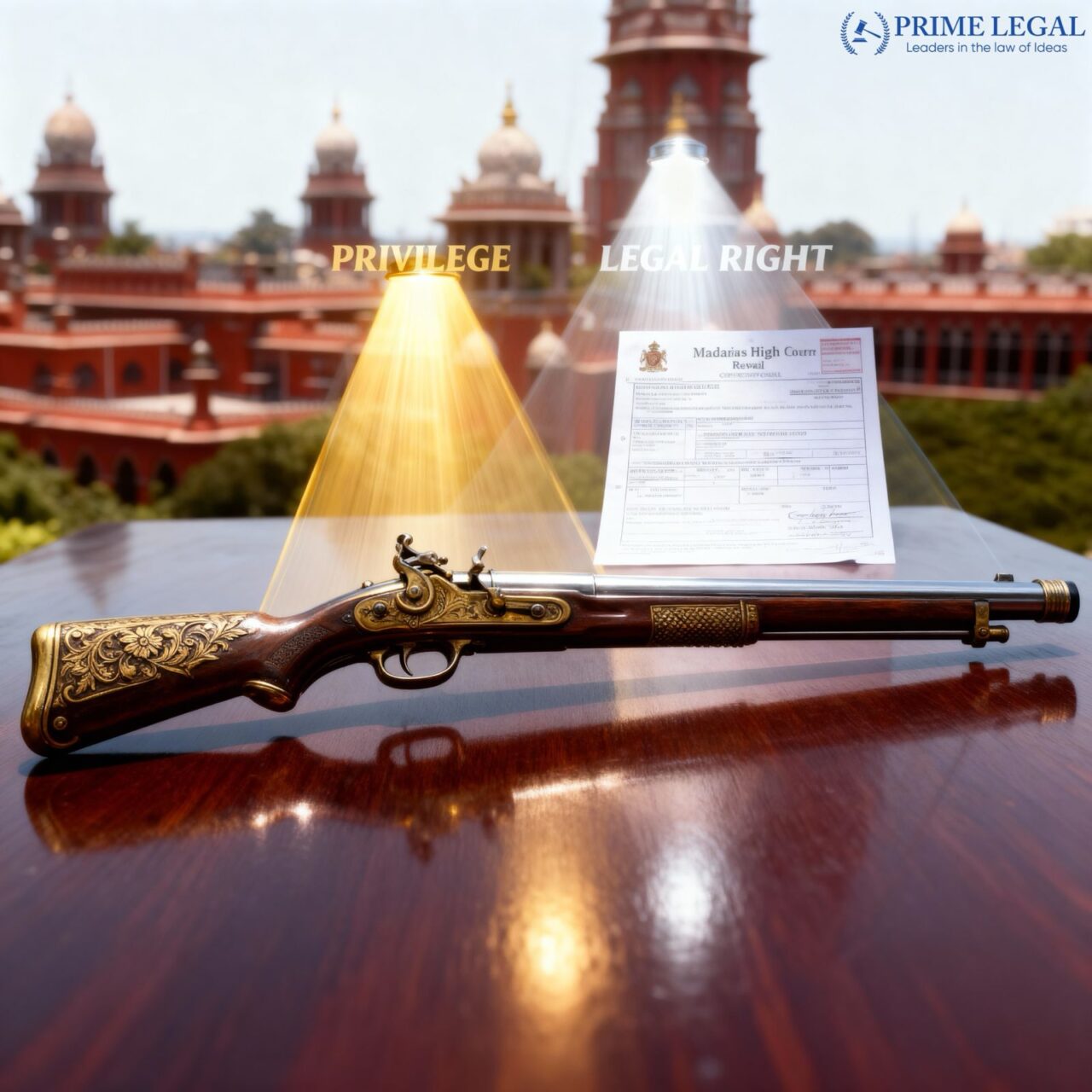Facts
The petitioner, Magudapathi, was issued a gun license in 2021. This license was previously renewed once without any problems. Later when Magudapathi applied for a second renewal of his gun license, the request was denied by the District Magistrate cum District Collector, Dindigul. The reason given for denial by the Collector was that there was a pendency of a criminal case against the petitioner. The District Magistrate believed this could endanger public safety. The Revenue Divisional Officer had earlier recommended the renewal in favor of the petitioner. The District Magistrate, in his response, argued that the law requires refusal of renewal when there is a reasonable belief the applicant may endanger public safety. The petitioner could seek renewal after being acquitted in the ongoing criminal case. Additionally, the petitioner was told an appeal could be made to the appellate authority (Additional Chief Secretary/Commissioner of Revenue Administration) within 30 days, and that the writ was not maintainable as the alternative remedy had not been exhausted. Magudapathi challenged the denial before the Madurai Bench of the Madras High Court, seeking a writ to quash the Collector’s order and direct the renewal of his license for five years
Issues
Whether the mere pendency of a criminal case against the petitioner, without conviction, constitutes valid grounds for refusal to renew a gun license under the Arms Act, 1959?
Whether the licensing authority (District Magistrate) followed the correct legal procedure and discharged the burden of proof required for refusing renewal, as mandated by Sections 13 to 15 Whether the petitioner had any alternative remedy (statutory appeal) and if approaching the High Court directly via writ petition was maintainable?
Legal Provisions
Section 13: Lays down the procedure for granting licenses, requiring a police report and written reasons.
Section 14: Lists grounds for refusing grant or renewal.
Section 15: Specifies five-year validity, renewal process, and application of Sections 13 and 14 to renewals.
Arguments
Petitioner
The petitioner contended that just because a criminal case was pending against him, it is not justifiable grounds for refusal to renew a gun license that has already been given to him under law. He contended that unless there are specific grounds which say that there is an actual threat to the public safety as mentioned in Section 13 to Section 15 of the Arms Act. The act of not giving him a license was arbitrary.
The recommendation was already given by the Revenue divisional Officer, which was in favor of the petitioner, but only the district magistrate failed to justify how a pending case against the petitioner was a risk.
He argued that under the Arms Act, the licensing authority must justify the non-renewal of an existing license, but it refused renewal without adequate reasons.
Respondents
The licensing authority, namely the district magistrate, maintained and argued that an individual with an ongoing criminal case is unsuitable for firearm possession. They argued that Public Safety was a basis within the Arms Act for denying the license.
The respondent argued that the petitioner was eligible to seek a renewal of the license once he was cleared of the ongoing case against him. Until that point, the rejection was to be upheld.
The respondents argued that the writ petition is not viable because the petitioner did not utilize the available alternative statutory remedy.
They emphasized that the license for possessing or carrying weapons is essentially a privilege rather than a legal right
Analysis
The Court noted that unlike the American Constitution, where the second amendment confers on the people the fundamental right to keep and bear arms the Indian Constitution nowhere provides for any such right. The court referred to the case of Ganesh Chandrababu, District Magistrate of 1993. Where the right to bear arms was embedded in Article 21 of the Constitution was held. The court noted that there is a distinction between right and privilege. If a person has a right, it postulates the existence of a duty on the other person. But if there is a privilege, then privilege is a negation of a duty. In the present case, the applicant is being prosecuted only for the offense under section 304A of IPC because he is said to have committed a motor vehicle accident. This can in no way endanger public safety because. Only those incidents that adversely impact societal life would fall under the category of public safety or public order. The court held that a case of fatal accident due to negligence would not fall under such a category and the petitioner is not accused of having misused the license issued to him.
Judgement
The High Court held that mere pendency of a criminal case is not enough to refuse renewal of a gun license. The refusal was arbitrary, and renewal should have been granted to the petitioner.
Conclusion
The Court held that mere pendency of a criminal case is insufficient to deny renewal of a gun license. The licensing authority failed to provide cogent reasons, and the refusal was arbitrary. The writ petition is allowed; the District Magistrate is directed to grant the renewal of the petitioner’s gun license for five years.
Click here to read more: magudapathu-v-district-magistrate
PRIME LEGAL is a full-service law firm that has won a National Award and has more than 20 years of experience in an array of sectors and practice areas. Prime legal falls into the category of best law firm, best lawyer, best family lawyer, best divorce lawyer, best divorce law firm, best criminal lawyer, best criminal law firm, best consumer lawyer, best civil lawyer.”
WRITTEN BY S.KAVIYA SRI


